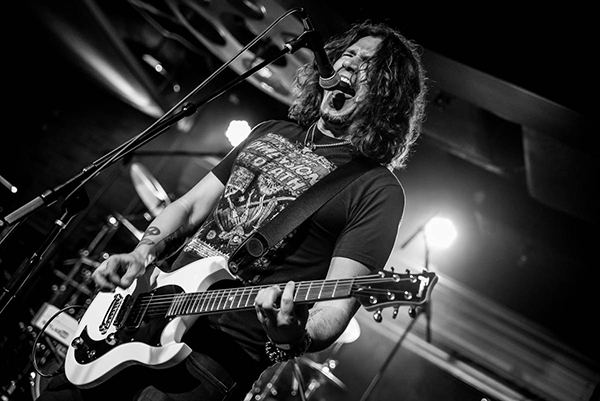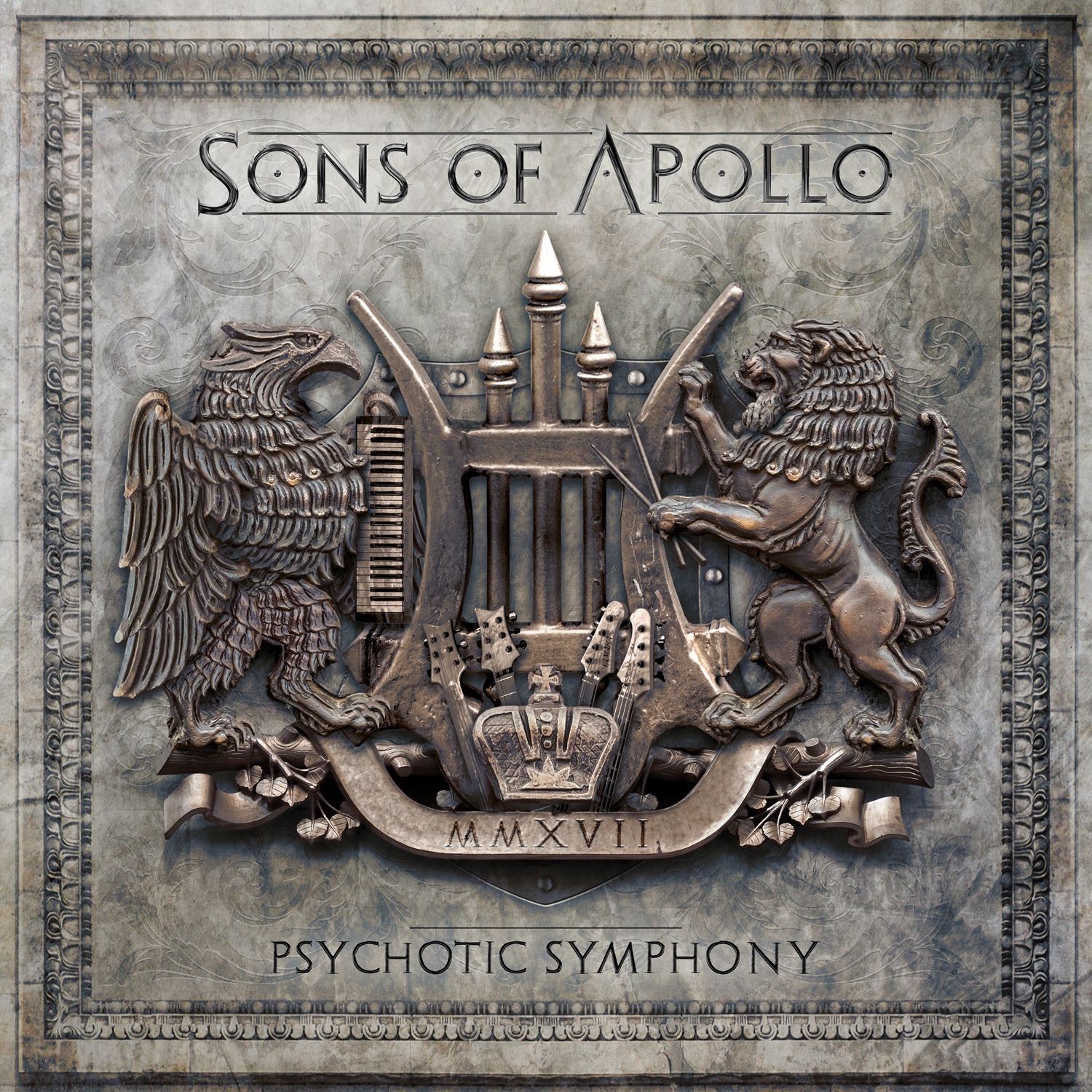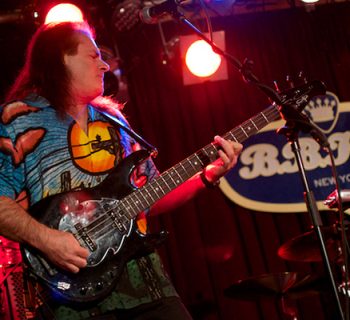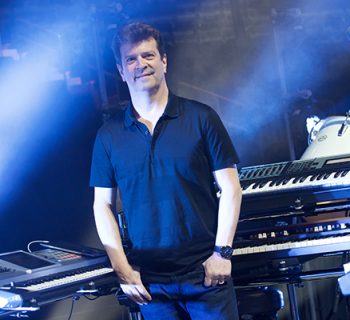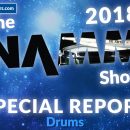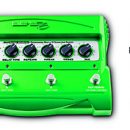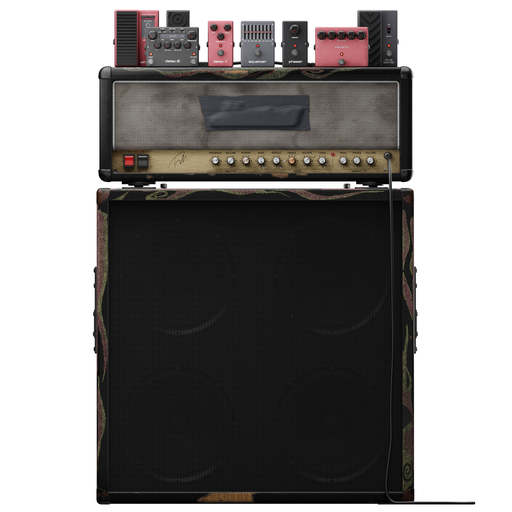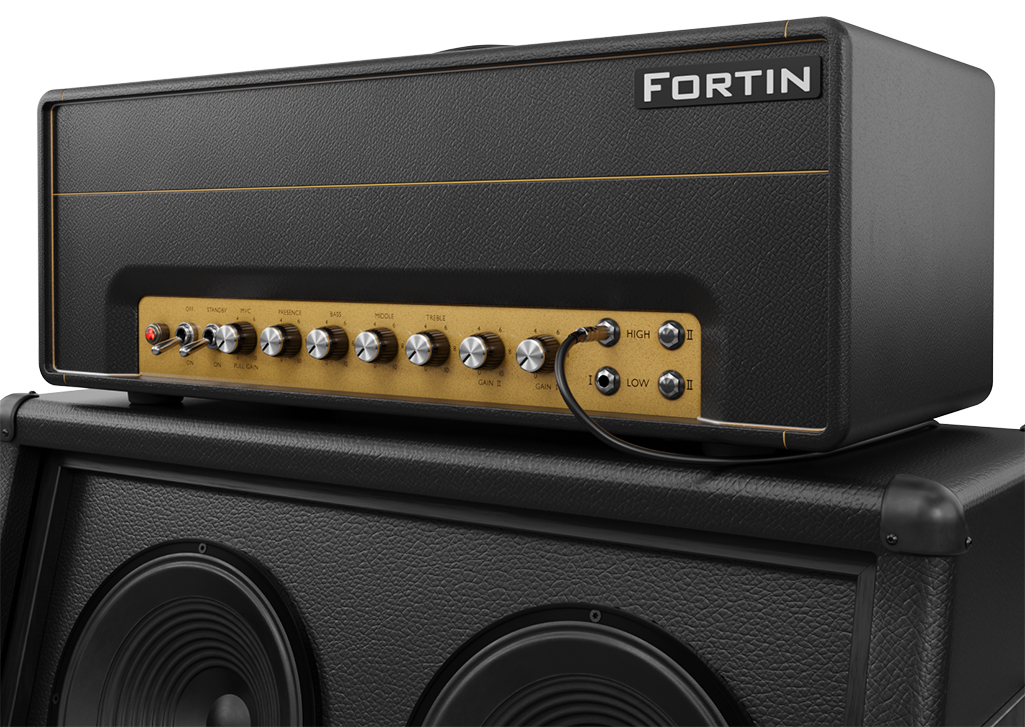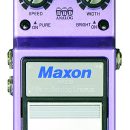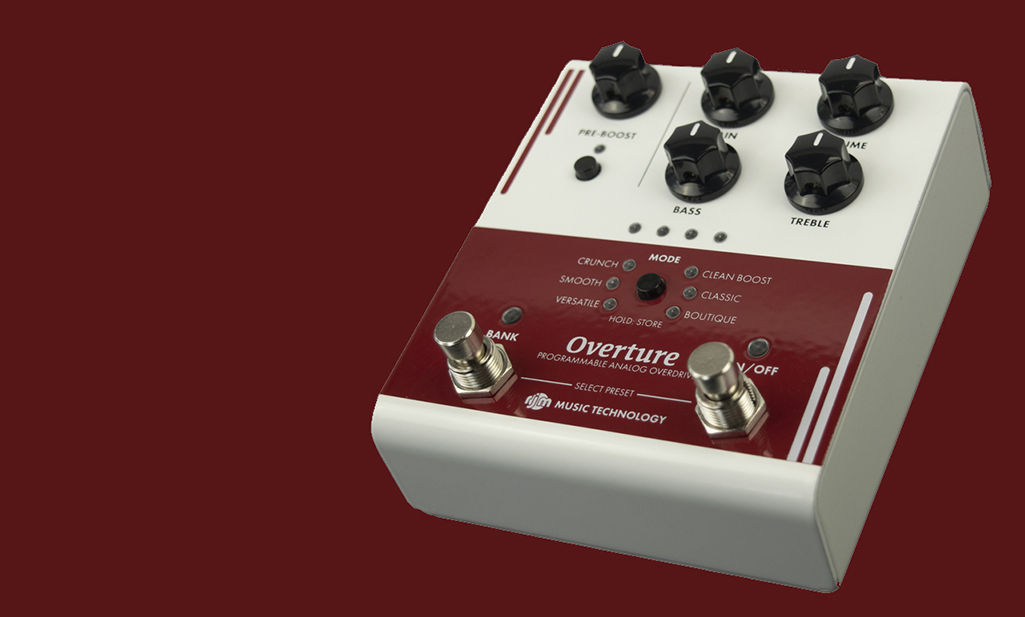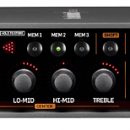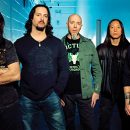Photos by: Ceól Photography, Linda Wake-Garza Photography, Heather Donovan Photography, and Alice Kordsmeier
For Phil X, it started like any typical day would at Henson Studios in Los Angeles. Inside the teak-burnished Live Room of Studio D, Phil is blocking out a piece of music he’s about to lay down for yet another one of Billboard’s top recording artists.
And he’s killed it. All the session musicians have killed it. The producers love it. The artist loves it.
However, there’s a record label exec on the burgundy couch in the D Lounge who appears to be suffering from a bout of demo-itis. He wants to know where his tiny guitar lick went from the second verse.
Phil, routinely eager to please everyone within ear shot, says “No problem!” He simply plugs in and lays it down again. Making everyone happy in an imperfect world is difficult at best, but when you’re a “Hired Gun,” this is how the job gets done: You lay it down until everybody loves it.
But this day is a little different. Grammy award-winning producer John Shanks will stop by. Phil has seen Shanks inside Henson’s storied walls plenty of times. Shanks himself has a studio there. But to Shanks, Phil was just another guitar player rockin’ a curiously amusing black t-shirt. And to Phil, Shanks was just another talented producer with a knack for guitar-driven pop. Until Shanks walks in to Phil’s Studio D:
“You’re a funny motherfucker,” said Shanks. Getting Phil’s attention.
“What?!”
“I just couldn’t stop watching your YouTube videos last night. Not only are you funny but it sounds like you can play and sing anything."
“Cool. Thanks man, it’s nice to meet you.”
And that was their total exchange until the phone rang two weeks later. It was Shanks.
“I think I have a gig for you Phil, I can’t tell you what it is over the phone but come to my studio tomorrow...”
The entertainment industry is famous, bordering on the notorious, for embellishing the truth. In the biz, everything’s on the table: fantasy, imagery, fluff, persona… it’s all good.
But there's another kind of embellishment, one that distorts events, turning real life into fake news for entertainment’s sake, like the term “Hired Gun,” for instance. Put another way, while similar, it ain’t your father’s gunfight at the O.K. Corral.
“Being a Hired Gun is like an old western,” says Phil. “It’s kicking the saloon doors open, taking on the bad guys. I love the term. Your instrument is your gun, it’s a great analogy.”
The artist is correct. It is a great analogy. But not when you conjure up a cinematic enhancement to an image of the Old West.
Unlike in the movies, easy shots were missed. The men just kept firing until they emptied their pistols. Onlookers were often hit. People didn’t know who “won” until the smoke cleared. But perhaps the most notable exaggeration—and the reason why Phil’s interpretation is so apt—is because it’s not the “fastest gun” that wins the battle. More than speed, it’s a “cool head” that provides the kind of enduring accuracy that survives. It’s the single most valuable asset for any gunman. In the Old West or New.
And a cool head is what makes Phil X one of the hottest session and touring musicians on the scene.
When Bon Jovi released their 14th studio album, This House Is Not For Sale, last fall, it marked their first release without Richie Sambora. Very quickly, the band took the new music out on the road, first with a series of four intimate Listening Parties that showcased the entire album, followed by a two-month run of North American arenas.
The post-Sambora Bon Jovi now features Phil X on several of the new album cuts. Phil X already had touring experience with the band, subbing for Sambora in 2011 and 2013, lending the band a talent for guitar so technically advanced that if you’re not paying attention you’d be fooled into believing it’s simplistic. So when it came time to assign a new lead guitarist to the vacated spot, the choice was clear.
What is not so obvious, however, is what the changeover entails.
 For serious musicians there are few films that jump out of "The Ultimate Manual To Being A Rockstar" compendium. The may-just-hit-too-close-to-home classic mocumentary, This Is Spinal Tap. Or the tour bus favorite—and real-life money vs. integrity—flick, Dig! Even the guilty pleasure, aspirational, rise-and-fall story of Mark Wahlberg’s Rockstar. This year saw a new film fit for your "required viewing" library. The documentary, Hired Gun: Out of The Shadows, Into The Spotlight, pulls back the curtain on more than 35 world-class musicians all of whom are experts at blending seamlessly into the backdrop. Hired Gun, screened nationally last summer and now available on DVD, Blu-ray, VOD, and Netflix, is an unrelenting deep-dive into the highs and lows of session and touring work. Combined, these musicians probably had a hand in nearly every album you’ve purchased post-1970, musicians you’ve undoubtedly seen on tour and likely never noticed. Simply, they are the go-to players standing in the shadows of your favorite stars; a true indispensable part of the music you love.
For serious musicians there are few films that jump out of "The Ultimate Manual To Being A Rockstar" compendium. The may-just-hit-too-close-to-home classic mocumentary, This Is Spinal Tap. Or the tour bus favorite—and real-life money vs. integrity—flick, Dig! Even the guilty pleasure, aspirational, rise-and-fall story of Mark Wahlberg’s Rockstar. This year saw a new film fit for your "required viewing" library. The documentary, Hired Gun: Out of The Shadows, Into The Spotlight, pulls back the curtain on more than 35 world-class musicians all of whom are experts at blending seamlessly into the backdrop. Hired Gun, screened nationally last summer and now available on DVD, Blu-ray, VOD, and Netflix, is an unrelenting deep-dive into the highs and lows of session and touring work. Combined, these musicians probably had a hand in nearly every album you’ve purchased post-1970, musicians you’ve undoubtedly seen on tour and likely never noticed. Simply, they are the go-to players standing in the shadows of your favorite stars; a true indispensable part of the music you love.
Phil X, who has recorded with such notables as Rob Zombie, Alice Cooper, Chris Cornell, Tommy Lee, Kelly Clarkson, Chris Daughtry, TRIUMPH, and a list that would run the length of your typical movie credits, was invited by long-time friend and colleague [Producer/Guitarist] Jason Hook (5 Five Finger Death Punch) to participate in the film.
We caught up with Phil X in Red Bank, New Jersey, shortly before the film’s national debut, while he was in town rehearsing with the Bon Jovi guys. Over a couple of black Grande Americanos, we talked about life with Bon Jovi, what it means to be a hot session player, and writing, recording, playing and singing in his own band—Phil X & The Drills.
You’ve been a highly sought-after session player for quite some time. When would you say your session work really took off?
Around 1999 I was asked to come in and play on Tommy Lee’s solo record, Methods of Mayhem and it started snowballing after that. But it was when I did the Daughtry record in 2005 that things really took off. Everybody wanted the guy that did the Daughtry record.
And it’s funny because people got specific: "Hey, can you bring the acoustic guitar you used on the Daughtry record?" "Sure," I’d say. It got really specific.
The work I did on that album… making a heavy-sounding record with rock-n-roll guitars truly musical… it was special. It was unique. This became my calling card.
And what kind of “calling card” do you think a musician needs in order to succeed as a Hired Gun?
Obviously, you want to end up on the short list… and everybody wants to be on that list. So, you have to stand out. I know a bass player who gets a lot of sessions in Hollywood just because he knows where to order lunch. People are like; "Let’s get that guy, he knows the best places." It’s not even about bass anymore at that point, right?… People like people and I make people laugh, make everybody feel good and I do the job. Which is, I’m handed a piece of music, I listen, and now it’s, what can I do to make it better? How do I make the verse more dynamic? How do I make the chorus the payoff? And how do I do all this while complementing the vocal because it’s the vocal that’s king.
Have you ever been fired?
… I don’t think so. Liberty DeVitto (Billy Joel) says something really amazing in Hired Gun, "In rock-n-roll you don’t get fire. You just don’t get called back." And that happens, but I don’t think that’s ever happened to me.
It’s interesting you mention Lib. His story in Hired Gun is particularly heartbreaking and really drives home what a thankless job this can be. For you as a musician, I imagine this work is incredibly fulfilling. But is there another side of it where you may wish, "It’d be nice if people knew who I was."
Well, it’s like [being] a Superhero, right? It’s nice to hear a thank you, but you don’t expect it. You just want to save the world. So, you compartmentalize what you’re doing and remember your job; to take this artist’s record to the next level. And get paid. And provide for your family. And that’s the bonus. But you get to make music… And I get to leave feeling creatively productive. And I feel good. That’s the bottom line. I think if you go in with a different mentality, like; "Why don’t people recognize me at the airport?" then you’re going to be frustrated.
Your first gig as a Hired Gun – technically – well, is it fair to say it was for your Dad? He being an accomplished Bouzouki player and needing a guitarist… even if you were only seven.
Well first, you have to be paid to be a Hired Gun and my Dad never paid me, but yes, my Dad influenced me greatly as a child. Not much in the technique department but in musicality and being an entertainer. I remember one time he said, “Son… you can’t just stand there. People want to see something special as well as hear something special.” Then next time he saw me he asked, “Ok… What the hell you doing up there? Gymnastics?!” Needless to say, I found a middle ground that made him proud.
I’d say so. How is it that you got the gig with Bon Jovi?
Jon Bon Jovi called John Shanks because they’d worked on so many records together. Jon said; "You know everybody. Who’s the guy who can step in and do this?" Shanks was like, "You gotta get this guy, Phil X." I didn’t audition. It was just on Shanks’ word that I was the guy.
So, this was in 2011, when you were temporarily filling in for Richie. And then you filled in for him again in 2013. But on Bon Jovi’s last tour, you’re really the guy now. You’re the lead guitar player. In your opinion, how has the dynamic of the band changed through what was a fairly difficult time for – not only Jon – but for the other members as well?
Well Jon’s become so easy-going on stage because the band delivers night after night. We’re rockin’ hard and working hard. [And] he makes mistakes too. Then he’ll look at me with a bit of a smile and go; ‘yeah, that was me.’ He’s become that [easy going] guy… it’s an incredible time to be on stage with the band. It’s just awesome.
I love the dynamic between the two of you, there’s an undeniable frontman/lead guitarist chemistry. As founder of Phil X & The Drills, what would you say is the biggest difference between being on stage as a frontman and being on stage in a supporting role?
There’s a huge difference. I’ve noticed that it doesn’t matter what the hell is happening on stage, people are watching Jon. I could be whipping out the solo of all solos and if he’s in the stands, nobody’s watching this [Phil makes an air-guitar gesture], which is amazing. He commands that and deserves [that acknowledgment].
I read this really cool Harold Ramis thing when he did stand-up. He said “It’s all about killing. But not only killing the audience, it’s killing the next comedian and the comedian before you, [making] everybody forget everybody else."
So, when I go on stage with The Drills, that’s my job. [But] when I go on stage with Bon Jovi, that’s Jon’s job.
And as an accomplished artist yourself, can playing somebody else’s catalog night after night become creatively frustrating? Is there something you do to make sure your Hired Gun work stays interesting and fun while also making sure you don’t lose sight of your individuality?
I think when it comes to the creative part of being onstage playing somebody else’s music, it has a lot to do with providing support. Creatively, it can be a little bit frustrating. Guitar players … have the biggest egos on the planet. But I learned early on that stepping onto that stage thinking I’m going to bring as much of me into this, well, that’s not going to happen.
I love outside, wacky guitar playing. I love ‘80s guitar flipping, Pete Townshend throwing the guitar up in the air type stuff. That does not belong on the Bon Jovi stage. So, I shelve it. What’s left is the supportive color that needs to be there.
And this works out fine for me. On my down time, if I have a day off, I stay away from the guys for the most part. I’ll hit the gym and an idea strikes, and it’s a lyric. Or I hear something and it triggers a melody. I record it on my phone. When I get back to my room I start playing guitar and I’ve got all these ideas … The most frustrating thing is writing something, you’re on a roll, then it’s a lobby call to go to soundcheck: Fuck! That’s the most frustrating thing but that’s your gig: Lobby call, five minutes, go.
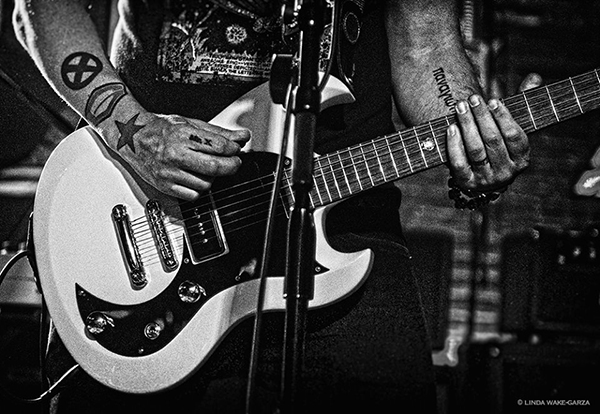 Photo: Linda Wake-Garza Photography |
I know how important your dic-taphone is to you when it comes to putting down ideas for your own music as they come to you. Will you show me some of the last ideas you had?
My dic-taphone … These are the last few ideas I have going on here [scrolling through phone]. You know what’s funny? Some of these are called “Super Cool Riff with A Voc Like the Devil” or “Killer Super Low Sync Octave Riff” here’s “Cool Swing Melody and Chords.”
A swing melody. You have a 6/8 on there?
I do have a 6/8 on here! And… I have a song called “Broken Arrow,” “If the World Was Upside Down,” “Find A Way to Feel Whole”…
“Find A Way to Feel Whole” … that almost sounds like, well most of your songs are kind of happy.
I have angry songs [and laughs].
You do but you don’t really have sad songs. Generally, they’re upbeat. But what if you have an idea that starts to become difficult to write; “Swatted Fly” for example. It sounds like there’s a lot of pain there.
When I write a song and I come up with an idea it’s mostly fictitious. Like in “I Wish My Beer Was As Cold As Your Heart”, there was nobody driving off Coldwater Creek Canyon into a tree. It was just that it rhymed, you know? But it’s funny, I wrote a lot of that stuff when I was with my ex-wife. And she’d hear the songs, and I’d be sitting there having coffee in the morning, and she’d walk in like; "That songs about me, isn’t it!?!" And I’d be, like; "I swear to God it’s not."
(But “Swatted Fly”), that was real stuff… that was about my ex-wife. You know, ideas pop into anyone’s head, but when you’re a songwriter you go, "that’d be a good song." So, I’d come (home) excited about something and she’d swat it down. Or I’d come in another time excited about something, and she’d knock it off the shelf. And then at one point I’m like; "Wow, I’m just a swatted fly" [Lightbulb moment gesture]... And then I wrote “Swatted Fly.”
Vulnerability is important. To make that connection … when people say … "I really connected to that, I felt that way before, too.” That’s how you develop that depth. That’s how you cultivate a connection with your fans.
It’s interesting you say that. Because I know you like to talk with your fans before shows. Now that's one thing at The Viper Room but you can’t exactly roam the concourse at Madison Square Garden. So how do you satisfy that desire then?
Again, it goes back to being the front guy and being the side guy. I don’t [always] need to go out and work the crowd.
My ex-wife and I had a band called Powder. When you move to Los Angeles from Toronto to be in a band, you quickly realize that people from all over the world move there to be in a band. Open up LA Weekly and there’s 20,000 bands playing every week, 200 clubs with five bands a night, Monday to Sunday. You have to stand out. I learned the whole “stand out” trick then.
In the beginning, you get on the phone and call all your friends—"Can you come to our gig? Can you come to our gig?"—just so there’s bodies in there. And they come, even though they don’t want to. But in the end, they’re glad they did.
The shift becomes; when you know everybody in line because you invited them versus walking out front and you don’t know anyone in line. And they all came to see you. And you can still walk around and be “just some guy.” Then it turns into; you don’t know anybody in line, but they all know you. And this is just going tier by tier by tier.
You had this great momentum with Powder, you’re building an audience in an impossible market. So where were the record labels?
Nobody wanted to sign us. We had all this stuff going on, we were developing our own band, we were recording our own records and nobody wanted to sign us. There were a couple of maybes, there were a lot of maybes, and then the industry was also fucked, so Universal would be like; "Hey, let’s do a deal." And we’re like; "Awesome." Then the guy gets fired. Stuff like that happened to us time after time after time.
And then, as we were chasing the dream, I got a message board message… I don’t know if it was MySpace or whatever… and somebody said, "Hey, I don’t know if you remember this girl, her name is Alysa, she was in a terrible car accident. She lost her arm. But she loves you guys, so if you could give her a call that would be great."
So, that’s who I am. Got the number, I call…
Phil: Hi is this Alysa?
Elisa: It’s Elisa (snarky).
Phil: Ok. Um, well this is Phil X from Powder.
Elisa: NO IT’S NOT!
Phil: Um, yeah it is.
Elisa: If this is you Jordan, this is a cruel joke!
Phil: No, I swear, it’s Phil. We met at our last show. It’s me. And I heard about your accident and I just wanted to see how you were doing.
Elisa: Oh my God… I just want you to know, that listening to your record, helped me get through this whole thing.
And that changed my life… it changed my life. It was an epiphany of fuck the labels, fuck the management companies, fuck everybody… it’s about the fans! We touch them. We change their lives.
And it was the moment where I said fuck everybody, that’s when stuff started to happen. A British label wanted us to sign. So, we signed. Then we got a distribution deal in Germany and then we did the Download Festival in England. It was all because we gave the finger to everybody … When you’re chasing it, you’re chasing your tail. When you tell it to fuck itself, then they want you. It’s a really weird industry.
It is a weird industry. Almost weirder now. To what extent do feel new media compromised the arts. For example: Any artist big or small is able to pull up streaming data from the many music subscription services. And this can be helpful, when used the right way. But if you take that data and put it in the label’s hands, or a writer's hands or producer’s… they can just start writing carbon copies of hit songs instantaneously. Do you feel creativity in this business has been compromised? Is there a way you use new or social media to inform your own decision making when it comes to your craft?
The music “Business” has always been a compromise. It just changes color. I love mini albums, EP’s, just 20 minutes of music to cover an average America's time in the car going from point A to point B. That's why The Drill’s first two CD's were as such.
Before the third album, We Play Instruments N Sh!t, I tweeted a question to our fans: “A new CD is coming. Do you want a mini album or a full-length album?” The answer was 80% full-length so my love and intention for the mini album was thwarted by our fans. And that’s great, that’s what they wanted, that’s what they got.
The cover art for We Bring The Rock 'n' Roll was an art contest. I love when fans feel a part of the creation process.
Speaking of being part of the creation process, you have a number of endorsement deals where you’re highly involved. How did that come about?
The endorsement thing is wonderful and can be lucrative. If you’re with the right company you truly feel like you are part of a family.
 Framus was the first guitar company that offered to build me the guitar of my dreams with no compromise. Prior companies always told me they could do this but couldn’t do that. And it was usually a very important element that I required that got the big fat “no.” Framus is a group of incredible people making incredible instruments. They even call me as a consultant when they’re working on something new.
Framus was the first guitar company that offered to build me the guitar of my dreams with no compromise. Prior companies always told me they could do this but couldn’t do that. And it was usually a very important element that I required that got the big fat “no.” Framus is a group of incredible people making incredible instruments. They even call me as a consultant when they’re working on something new.
Friedman Amps was a joint effort where I was in [Owner/Founder] Dave Friedman’s shop playing my guitar into just a chassis he was sitting in front of - soldering iron in hand – switching components in and out. Until this alligator clip went from point A to point B and voila! Magic!
The one thing I can tell you for sure is that it’s way cooler if they come knocking on your door than if you go knocking on theirs.
And I know you have your own line of pickups.
Yeah, it’s pretty amazing. With Arcane, [Owner/Founder] Rob Timmons and I just started talking and geeking out over pickups. He wound a pickup by hand just for me and I was amazed, mostly by the difference in the character of a pickup hand wound in a small shop as opposed to a machine in a factory. The first one – my PX90 – was so great I started selling it in my online store.
Then came the PX100 which is a PX90 in a humbucker size, followed by my humbuckers the PX-8 and PX SUPER-8. All on sale in my store, all in most of my guitars.
The two words I can use to describe my pickups is speak and respond. They speak to my ears and respond to my hands.
I love talking to you about gear. But what I find truly interesting is that you’re actually a rather “bare bones” player. Yet you’re still able to achieve the most unbelievable tones. For the most part, no whammy bar, one pick-up, two pedals…
Being a “bare bones” player actually originated from the desire to run and jump around and not be stuck at a pedal board. I can get whammy effects from “behind the nut” pulls and tuning peg winding and crazy vibrato effects from my hands. I get different sounds from sparkly clean to fuck-you-angry to the famous “Woman” tone with just my volume and tone controls and where I pick on the guitar between the bridge and the neck and how hard I strike the strings.
It really wasn’t something I practiced in my bedroom growing up. Just the product of a sound I’d want to hear at that moment.
You also get very creative with your guitars…
Yeah, I’ve been known to use a torch or paint thinner to get a different look to my guitars. It’s not the whole new “induced” aged, relic-ed, checked… etc. look. It’s more of a delicately “beat to shit” look. Sometimes you just don’t want a guy walking up to you and saying, "Oh, I have a guitar just like that." Because really, you don’t, and if you do, you’re a copycat motherfucker [laughs.]
And there's what's people have come to know as my "Drills guitar," which is just covered in stickers.
Let’s talk about The Drills. In 2003 you started Phil X & The Drills while Powder was still hot on the scene. What was it that made you look for another project?
During the early days of The Drills I was doing the Powder thing and needed another canvas. I wanted to sing things that [Ninette] wouldn’t sing. So, I thought I’ll write these really cool, short, poppy songs and find a band or a young kid to deliver the message. The more I started doing demos, the more I realized that there’s no kid who can deliver this message like I can. I felt it just had to be me, I wanted it to be me.
Before the first record, I wrote 11 songs in 11 days that actually branch out across all three of our records. I wrote “Air Hockey Champion Of The World,” “Beautiful Apartment,” “Evil Robot” – which will be on the next record – “Live On The Moon” – which was on the second record - “Sunny Days” … It was like Peter Frampton writing his two biggest songs in one afternoon. It [was] just an explosion.
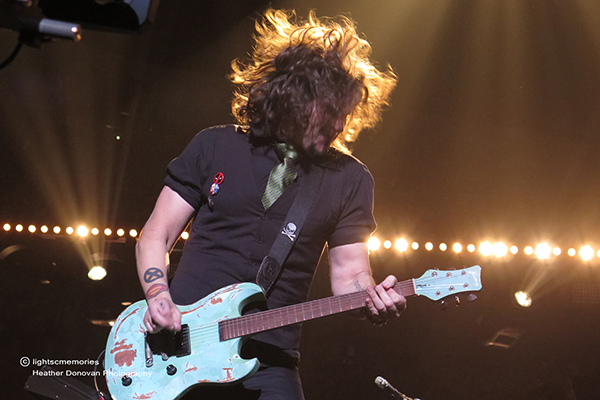 Photo: Heather Donovan Photography |
So, I’d go in and they’d be like "What do ya got today?" And I’d play them “Evil Robot” and they’d be like, "What the fuck?" The next day I’d play them “Middle Finger” and they’re like; "What the!?!" And the next day, “Air Hockey Champion” … "I don’t get it," they said. "You’ll get it tomorrow" [laughing.]
On your first EP, Kick Your Ass in 17 Minutes (2009), and your second EP, We Bring The Rock ‘n’ Roll (2011), you hear your sound evolve. But I think it’s on your 3rd album, We Play Instruments N Sh!t (2012), where you hear the most significant progression. Talk about how The Drills have grown over the years?
It seems like a growth, doesn’t it? … The funny thing is, I don’t think it is growth as much as it’s letting other influences in. [But] obviously, as an artist, you still want to show growth from record to record.
On the first record I wanted to do two-minute songs, no solos. I was keeping that stuff to a minimum. I wanted it to be intense, almost live sounding. But lyrically I wanted it to be on the same page; that’s “Middle Finger,” and “I Wish My Beer Was As Cold As Your Heart.”
The next record … I wanted to be even more live. It was a little more frantic, less controlled than the first CD. Technically, we did the first record all to “a click,” so it’s on a grid. On the second there was no click, that’s why you can hear the unbridled power of “We Bring The Rock ‘n’ Roll,” a really fast song that speeds up, slows down a little then speeds up again. On “You're Not Happy 'til I'm Not Happy,” I wanted the end to sound like my favorite Van Halen I -- stuff that sounds like a band doing this jam at the end. We were in the studio and our drummer just breathed fire into the end of this thing. I was going off, the solo is at the end, and then I just [ended the song]. I thought that’s exactly what I wanted. And I got it.
We Play Instruments N Sh!t is almost a combination of the two. There’s the power of jamming but there’s also songs to a click. As for songwriting, this is how I felt – with the first two records being EP’s. If you’re doing a full length record you can’t have 11 “Middle Fingers” on it. There’s a few of those but there’s also a whistle song - I never had done that before. I wasn’t overproducing, but if I wanted a cello? I got a cello. I also wanted a cheerleading section. I was working on a record with two girls – talented songwriters, singers, really awesome – and I asked them if they could come into the studio and give me some cheerleading and they did. There’s also a song in a different time signature. We’re usually a 4/4 band, pure rock ‘n’ roll, but “Freakshow Acrobat” was a left turn for us. As far as songwriting goes, I went out there. *
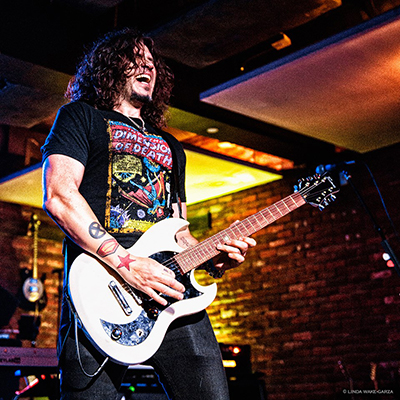 Photo: Linda Wake-Garza Photography |
You’ve been flying under the radar somewhat with this band. Is there a place or time you can point to and say, "This is when I started to be taken seriously?"
I think it was the Internet. The Fretted Americana videos took my demographic and just blew it up all over the world. I found that out when we did We Play Instruments N Sh!t. I put out a pre-order on the website and when it came down to shipping, it was me and [Bass Player] Dan (Spriewald) with stacks and stacks of manila padded envelopes filled with CD’s.
I realized then that only 20% of the packages were going to the United States; the rest were going all over the world. From Thailand, to Madrid, to the UK and Scotland, to Spain -- everywhere in Europe, Japan and China, just everywhere. It was amazing!
And then, what really hit me was … last July, we went to Slovenia and played a Beerfest in front of 5,000 people. There were people singing the words to “Air Hockey Champion of the World.” I was blown away.
It’s a little late in the game to feel like you’ve made a point. Because we started The Drills in 2003 and we only have three records out and the last one came out five years ago and I want to shoot myself when I think about that, because I’ve been working on the 4th installment since 2014.
Well, you’ve been a little busy.
[Laughs.] Yeah. And we have 12 drummers on the next record. Because there’s a different drummer on each song and everybody tours and works so it took two years to record. But now we’re in mix mode and stuff like that.Can you ballpark a possible drop date? Drills fans are clamoring for this…
It would be nice to do it this year.
Are there any upcoming Drills dates you can share with us now?
That’s been hard to juggle… In December we go to Ontario. On January 31st I’ll be performing as part of the Adopt the Arts event honoring Sammy Hagar. Killer line-up for that event. Beyond that it’s hard to say… I gotta' put my mind into it, like, "Ok, I can go do The Drills now."
We did that Hired Gun Pre-Premier Party at Lucky Strike a few weeks ago… But I had just done two months straight with Bon Jovi. I’d become a different guitar player, a different singer, and when we rehearsed… I’m thinking; "My hands aren’t working, my voice isn’t working! What the fuck is going on?" But then I get out of my head, I’m ready to do the gig, and everything works.
I’m hard on myself. Everybody is. Jon’s hard on himself. Jon’s harder on himself than anybody else. I’ve learned a lot from him. Even when I started doing the first couple of shows with Bon Jovi… I’d watch him front the band and I’m like; "That’s how you fucking front a band." And he’s in the ring for 2-1/2 hours, 3-1/2 hours in Europe. He works his ass off; that’s how you do it.
Yes. Jon Bon Jovi is a phenomenal frontman. But you are also someone with rather commanding stage presence. Is exercising restraint in your supporting role difficult?
[It] becomes very second nature. I’m very well aware of my parameters. Occasionally, I’ll step out. It won’t be over the top, but it may be something that I do or play – like we started playing “New Year’s Day” a lot from the new record – I can’t help but pogo. And pogo is not a Bon Jovi thing. But I’m playing a Flying V and I’m pogoing. And that’s stepping out of the parameters. Because it’s a fun song. And it’s oozing out. Let it.Here’s a crazy hypothetical: You’re in jail, serving a life sentence for … “Awesomeness.” You get a one-night-only get out of jail free card. You get to play one show. Is it Bon Jovi for 50,000 people or The Drills for 500?
The Drills for 500. I’ve said this many times. It was 2011 and I had just done 13 shows with Bon Jovi. The last show was in St. Louis. It was a great show. Jon let me sing the second verse of “Wanted Dead or Alive” for the first time. He said "Hey, it’s your last show because Richie’s coming back, why don’t you do that?" That was really awesome… Five days later, The Roxy, 300 people, The Drills. It was as invigorating. Maybe even more so.
The only thing that sucked was maybe carrying my own gear [laughing.] Like "Where’s [guitar tech] Takumi?! I need Takumi!"
This last tour, well, you’re the guy now. Richie’s not coming back. The Hired Gun film also features Jason Newsted, who played bass for Metallica following the death of Cliff Burton, as well as Brad Gillis who replaced Randy Rhoads of Ozzy Osbourne’s band after his untimely death. Both Jason and Brad discuss how difficult it is to step into the shoes of a beloved musician. Jason Newsted gave Brad Gillis lots of credit, saying "Not everybody is made for that." While the situation is not exactly the same, I imagine you faced similar challenges… challenges that come along with, "Who the fuck is this guy?"
Here’s the thing: Richie is a great songwriter, a great guitar player, has a great voice. And I can’t do all that. Because I’m a different singer, a different player. I haven’t written any of those songs. So, my job is about doing my part to make the whole band great -- not exactly what Richie would do because I can’t be Richie, and I can’t be me. I’m really this guy in the middle that just does his job.
 What took it to the next level was being on a billboard, or on the marquis as you pull up to the venue, or on a t-shirt. I was at the NAMM show before the tour even started this year, and this kid came up with a vinyl of the record, opened up the jacket and asked, "Can you sign by your picture?" That was amazing. That took it to the next, next, next, next – level for me.
What took it to the next level was being on a billboard, or on the marquis as you pull up to the venue, or on a t-shirt. I was at the NAMM show before the tour even started this year, and this kid came up with a vinyl of the record, opened up the jacket and asked, "Can you sign by your picture?" That was amazing. That took it to the next, next, next, next – level for me.
As for the acceptance thing, there was that transitional period when signs changed from “Where’s Richie?” to people putting X’s on their hands and holding their arms up to form an “X.” Jon pointed to someone doing that once, like "Hey look!" And everybody’s got their arms up, and there’s a crowd of them, and signs “We Love Phil X” and “Phil X Is The Best.”
That transition was an amazing feeling but even in 2011, when they were saying that I was filling in for Richie, the media was writing; "Phil X Replaces Richie Sambora.” And it started to piss me off – it was getting twisted. So I tweeted, “I wish the media would stop saying that I’ve replaced Richie Sambora. Richie’s coming back. I’m just helping the band out through a tough time.”
And that wasn’t some chess move like "What can I say to get the fans on my side?" But that’s what happened. Fans legitimately felt "This guy’s cool; he doesn’t want Richie’s job, he’s just helping the band out." And that helped me. And of course, the next thin was,"Well, let’s see how this guy is doin."And they’d go on YouTube and see... I was also doing a good job.
Not once if anybody’s asked—or have I ever said, “I’ve replaced Richie Sambora.”… Because I don’t feel that I have.
I feel like it’s a band. And it’s a bit of a different band now.
And it’s still called “Bon Jovi” because, well, fuck, that’s the singer’s last name.
Additional Information:
For more information about Phil X, visit www.philx.tv
For more information about Hired Gun: Out of The Shadows, Into The Spotlight, visit www.hiredgunthefilm.com
For Tickets to the Adopt The Arts Benefit Honoring Sammy Hagar and Hosted by Jane Lynch, visit Adopt The Arts.
The tribute will take place January 31, 2018 at the Avalon Ballroom in Los Angeles, with Adopt The Arts co-founder and former Guns N’ Roses and The Cult drummer Matt Sorum leading an all-star Kings Of Chaos ensemble that will include Michael Anthony from Hagar’s band The Circle, Steve Lukather of Toto, Dean and Robert DeLeo of Stone Temple Pilots, Phil X and more.
* Additional sources: NerdLush

